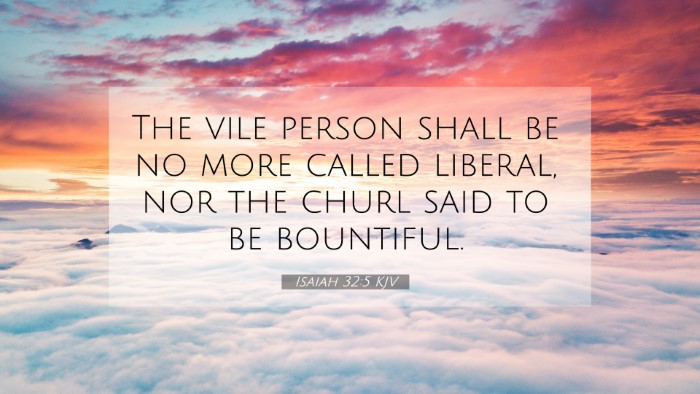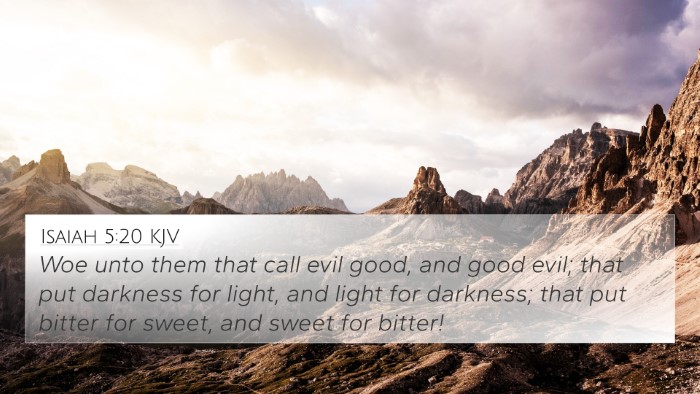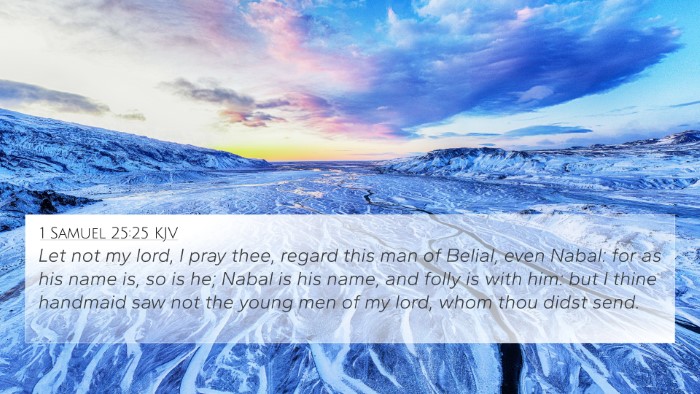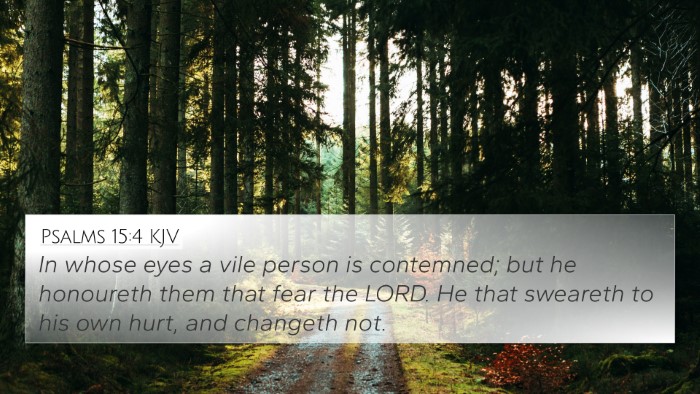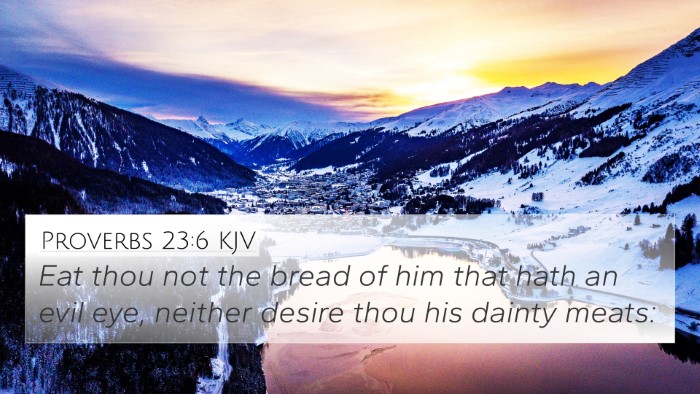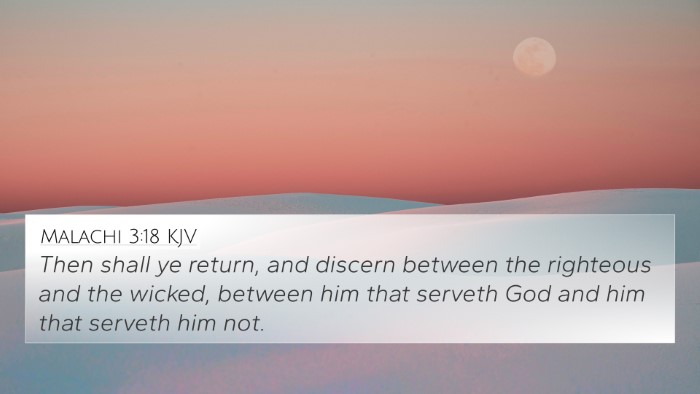Understanding Isaiah 32:5
Isaiah 32:5 states: "The vile person shall be no more called liberal, nor the churl said to be bountiful."
This verse reflects a profound shift in societal values, illustrating the transformation that occurs in the reign of divine righteousness. In this summary, we merge insights from esteemed public domain commentaries, providing clarity on the interpretation of this scripture.
Contextual Analysis of Isaiah 32:5
Setting the stage, Isaiah is proclaiming the coming of a righteous king who will restore justice and equity. Matthew Henry emphasizes that this verse highlights the moral reformation that will accompany the reign of such a ruler. The terms "vile person" and "churl" symbolize those who are unjust and ungenerous, respectively.
Commentary Insights
Albert Barnes notes that the verse suggests a future where societal labels and judgments are reversed. The values of the world will no longer apply, as the presence of righteousness will redefine what is considered noble or ignoble. The implications of this change are profound as it challenges the existing moral order.
Adam Clarke elaborates further, stating that those who were once uplifted and praised for their wrongdoings will be recognized for their true nature. In the divine kingdom, qualities like generosity and kindness will be appreciated, while vice will be openly condemned.
Related Bible Verses
This verse relates to several other scriptures that reinforce its themes of justice, righteousness, and the overturning of human standards.
- Isaiah 11:4: "But with righteousness shall he judge the poor, and reprove with equity for the meek of the earth." - Highlights the coming judgment of the righteous king.
- Jeremiah 23:5: "Behold, the days come, saith the Lord, that I will raise unto David a righteous Branch, and a King shall reign and prosper." - Emphasizes the establishment of righteousness.
- Matthew 5:6: "Blessed are they which do hunger and thirst after righteousness: for they shall be filled." - Connects the thirst for righteousness with divine fulfillment.
- Luke 16:15: "And he said unto them, Ye are they which justify yourselves before men; but God knoweth your hearts: for that which is highly esteemed among men is abomination in the sight of God." - Warns against human-valued righteousness.
- Romans 1:17: "For therein is the righteousness of God revealed from faith to faith: as it is written, The just shall live by faith." - Discusses the revelation of God's righteousness.
- Proverbs 11:21: "Though hand join in hand, the wicked shall not be unpunished: but the seed of the righteous shall be delivered." - Contrasts the fate of the wicked with the righteous.
- 2 Corinthians 5:21: "For he hath made him to be sin for us, who knew no sin; that we might be made the righteousness of God in him." - Explains the impartation of righteousness through Christ.
Thematic Connections
Linking Isaiah 32:5 with these other scriptures underscores a central biblical theme: the inversion of worldly wisdom in favor of divine order. This thematic connection can be seen throughout the Bible, illustrating an overarching narrative where God's kingdom is established through His justice and righteousness.
Cross-Referencing Biblical Texts
Those studying the Bible can use various tools for cross-referencing such as a Bible concordance or a cross-reference Bible study guide to further explore these connections. Identifying how different scriptures relate enhances comprehension of biblical themes.
Conclusion
Isaiah 32:5 serves as a prophetic declaration of the transformation that occurs in the presence of true righteousness. Through the combined insights from Matthew Henry, Albert Barnes, and Adam Clarke, we glean a deeper understanding of the societal implications of this verse.
Exploring related scriptures enhances our understanding of the connections between Bible verses, presenting a more comprehensive view of God's intentions for humanity. The themes of justice and righteousness will echo throughout both the Old and New Testaments, providing valuable lessons for all believers seeking to align their lives with divine principles.
As we engage in comparative Bible verse analysis, we discover rich themes and insights that lead us toward a deeper relationship with God and a more profound understanding of His righteousness.


